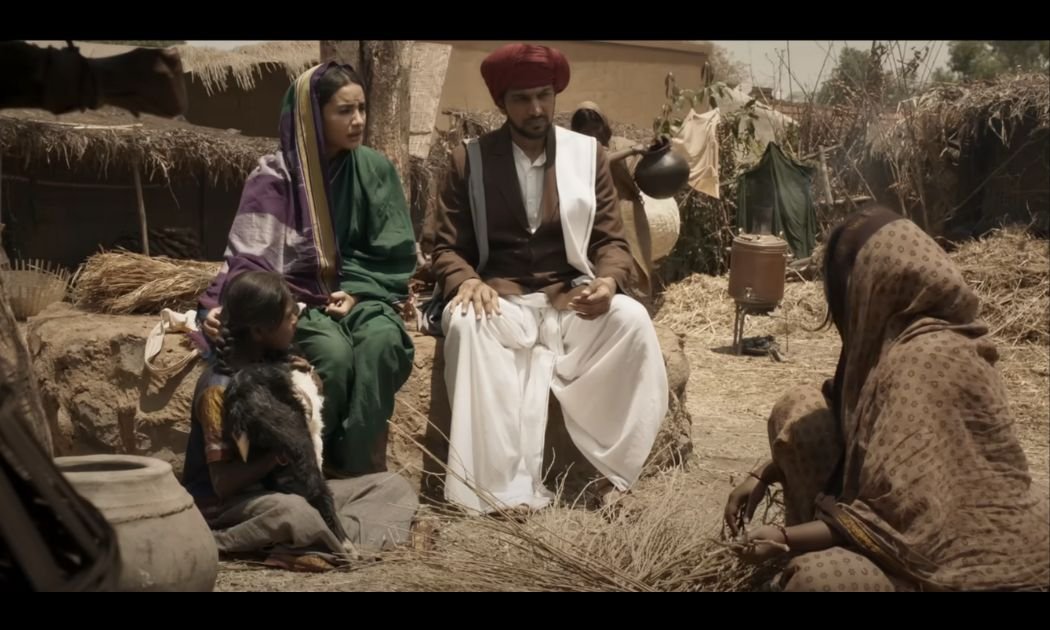Phule’s Fight Against Caste Still Resonates as Film Brings His Legacy to Screen
Story of Jyotirao and Savitribai Phule Returns to Public Attention Through Cinema
May 13, 2025
Screenshot from the film
A new biopic on 19th-century social reformer Jyotirao Phule and his wife Savitribai Phule, titled “Phule,” is now running in Indian theatres, drawing attention to enduring divides over caste, education and equality nearly 150 years after his death.
Directed by Anant Mahadevan and starring Pratik Gandhi as Jyotirao Phule and Patralekhaa as Savitribai Phule, the film recounts the couple’s pioneering efforts in social reform: opening India’s first school for girls in 1848, exposing caste-based exploitation and launching the “Satyashodhak Samaj” in 1873 to fight Brahminical dominance and priestly monopoly over knowledge at the time.
The film’s release has obviously not been without controversy. Objections from some Brahmin organisations led the Central Board of Film Certification to ask for changes to “casteist terminology” and certain dialogues. The delay and edits triggered criticism from civil rights groups, who say the discomfort over Phule’s message proves just how relevant his warnings still are.
Phule was born in 1827 in present-day Maharashtra into a family classified today as OBC (Other Backward Classes). He was educated with support from a Christian missionary and later turned vehemently against the social norms that kept lower castes, women and non-Brahmins out of schools and public life.
Phule’s writings—particularly Gulamgiri (Slavery)—attacked the religious justifications of caste discrimination and accused Brahminism of institutionalising inequality. He compared the treatment of Shudras and Ati-Shudras (Dalits) to slavery, and proposed an alternative history in which Aryans were foreign invaders who subjugated indigenous peoples.
The Satyashodhak Samaj (Society of Truth-Seekers) was a radical social reform movement aimed at dismantling caste hierarchy and promoting education and social rights for Shudras, Ati-Shudras and women. It rejected Brahminical rituals and priestly authority, encouraging members to conduct their own weddings and religious ceremonies without orthodox intermediaries.
The Samaj focused on building a society based on equality, rationalism and dignity, and became a crucial platform for challenging the social dominance of upper castes in Maharashtra. While the movement promoted rational critique of caste and religion-based authority, it didn’t adopt atheism. It was “rationalist” in the sense that it questioned social practices through reason and ethics, not blind faith—but it did not deny spirituality or God.
His ideas attracted fierce resistance from sections of Hindu upper-caste elites, but also inspired a generation of anti-caste thinkers, including Dr. B.R. Ambedkar. Phule laid the foundational ideas, asserting that caste inequality was a man-made injustice rather than a divine or natural order. Building on that vision, Ambedkar transformed those principles into concrete legal and political action.
More than a century later, many of the conditions Phule condemned still exist, though in altered and often less visible forms.
Caste-based crimes, or crimes against Scheduled Castes (SCs), have continued to rise in recent years.
According to the National Crime Records Bureau, the number of registered cases rose from 45,961 in 2019 to 50,291 in 2020, an increase of 9.4% in just one year. The 2022 report recorded 57,582 cases registered for crimes against SCs, marking a 13.1% increase from the 50,900 cases reported in 2021.
Further, as many as 13,626 students from SCs, Scheduled Tribes (STs) and OBCs dropped out of central universities, Indian Institutes of Technology (IITs) and Indian Institutes of Management (IIMs) over a five-year period, The Indian Express reported in December 2023.
The Phules’ campaign to educate girls also remains unfinished.
As of the most recent available data, female literacy rates among SCs and STs in India continue to lag behind the national average. According to the 2011 Census, the female literacy rate for SCs was 56.5%, while for STs it was 49.4%. In contrast, the national average for female literacy stood at 65.5% during the same period.
The release of “Phule” may revive an older political argument: that the rise of Dalit consciousness has historically been met with Brahminical anxiety—and one response has been to divert attention toward Muslims as the “enemy” of Hindus, according to scholars like Kancha Ilaiah who have argued that upper-caste-led nationalism deliberately positions Muslims as external threats to prevent lower-caste communities from mobilising against their own marginalisation.
In his book, Why I Am Not a Hindu, Ilaiah critiques the concept of a unified Hindu identity, arguing that it masks the deep-seated inequalities and contradictions inherent in the caste system. He argues that the term “Hindu” was historically unfamiliar to many lower-caste communities and that its adoption served to obscure the social stratifications and maintain Brahminical dominance.
Mainstream cinema only occasionally addresses legacy of people like Phule. In contrast to biopics of kings and saints, stories of radical reformers who question religious power structures often struggle to get funding and distribution.
Meanwhile, in a country still struggling with caste violence, educational exclusion and communal polarisation, questions Phule asked in the 19th century remain unresolved.
You have just read a News Briefing by Newsreel Asia, written to cut through the noise and present a single story for the day that matters to you. Certain briefings, based on media reports, seek to keep readers informed about events across India, others offer a perspective rooted in humanitarian concerns and some provide our own exclusive reporting. We encourage you to read the News Briefing each day. Our objective is to help you become not just an informed citizen, but an engaged and responsible one.

